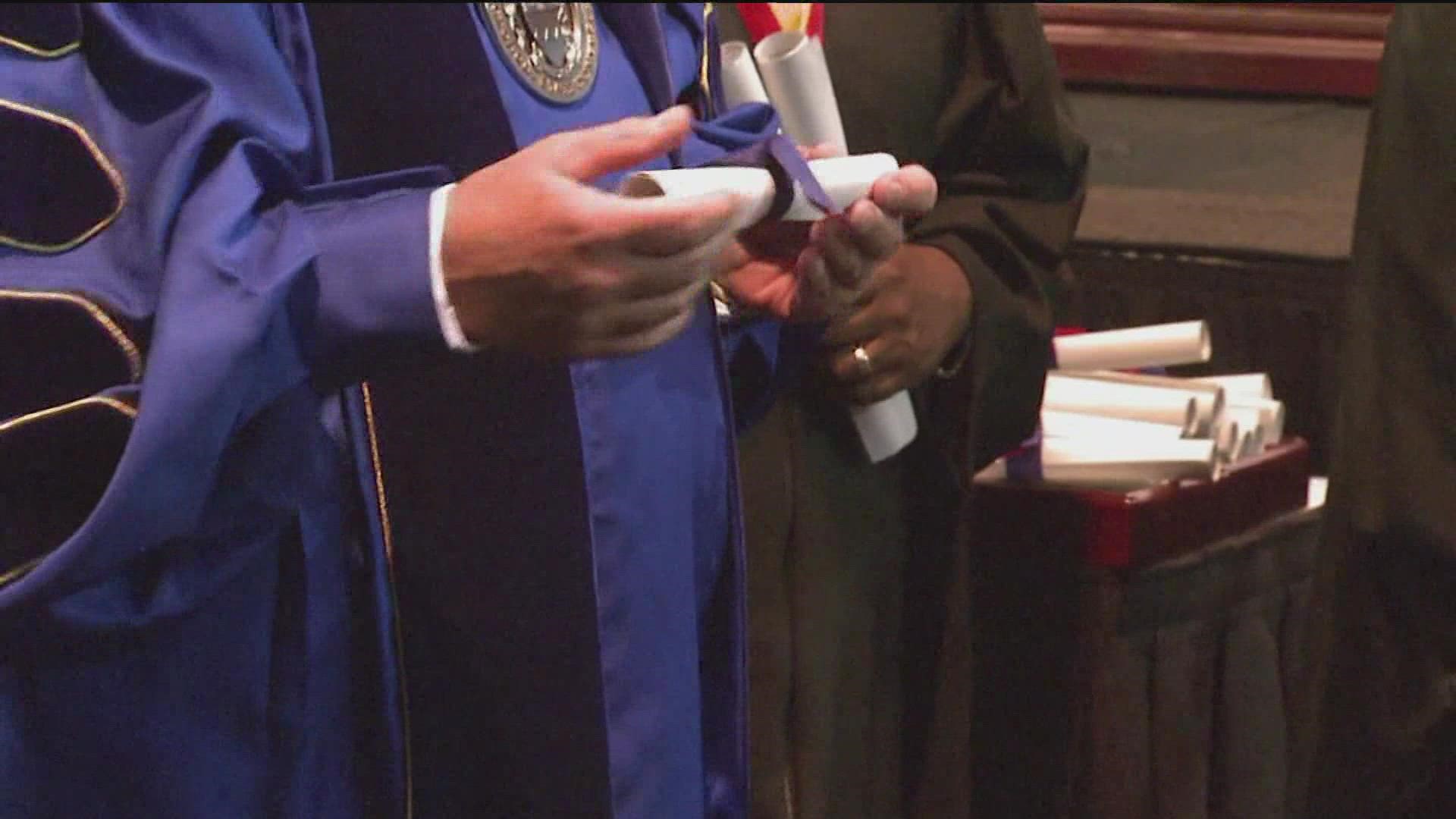SAN DIEGO — Class is back in session and some San Diego college students are gearing up for another busy school year. What they are not prepared for is the amount of college debt that awaits them once they graduate.
“It’s kind of scary because you don’t know if you could fall into debt,” said Ruth Suarez, who is preparing to head to college.
Currently, about 44 million borrowers owe an estimated $1.7 trillion in federal student loan debt, according to the U.S. Department of Education.
Between the uncertainty of the federal student loan payment pause, student loan forgiveness and a struggling economy, many college students with debt are worried about what life will look like after graduation.
“They are not paid off yet, and It was a tough decision to have to take them out. I guess it was a necessary evil,” said a faculty member from San Diego State University, who told CBS 8 they have not paid off their student loans.
August 31 is the deadline for the moratorium and many are scrambling to look for options.
If you are one of those people here is what you need to know:
- Education Department’s COVID relief website, including details on the student loan pause.
- The latest program is called Fresh Start to help those who missed loan payments before the pandemic.
- The Education Department released proposed new regulations, the Department may release a proposed new income-driven repayment (IDR) plan soon, just as officials begin implementing the new IDR Account Adjustment, which is designed to advance borrowers’ progress towards student loan forgiveness.
Some experts believe President Joe Biden could announce another extension, but the Biden Administration has not been clear on what the decision will be.
“While I don't have an announcement here today, I can tell you that we are having daily conversations with the White House,” said Miguel Cardona, the U.S. Secretary of Education.
What about loan forgiveness?
The Biden Administration has already canceled $31 billion in student debt and has forgiven debt to those in a public service position like teaching and law enforcement.
Except, that still leaves a large portion of borrowers struggling with loans. Economists say the administration needs to focus on the income inequities first.
“The extent of income inequalities is really known by most people,” said Economist Daniel Enemark.
Could forgiving student loan debt make inflation worse?
“When the government stimulates the economy it can contribute to inflation but Some of those fears are overblown,” said Enemark.
The concern that canceling student debt would give borrowers more money to spend and therefore increase inflation may not hold true for many borrowers.
U.S. Secretary of Education Miguel Cardona did say President Joe Biden could make a decision as soon as this week.
In the meantime economists advise that you take finances seriously. If you want tips on how to save, you can go to this link.
There is also an income driven repayment plan for those with a lower income who are unable to pay off their loans under their current plan. The U.S. Department of Education has set up tips on how to get started.
WATCH RELATED: Public employees have until Oct. 31 to apply for federal student loan forgiveness (Aug. 2022)

